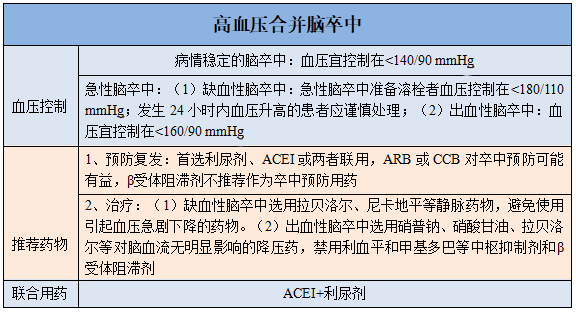|
|
[HTN big market] dead or paralyzed! How should stroke caused by hypertension be treated?Issuing time:2020-10-24 11:34 Stroke, also known as "brain stroke", is a disorder of blood circulation in the brain caused by the occlusion or rupture of cerebral arteries. It can be roughly divided into two categories, namely, hemorrhagic stroke and ischemic stroke. Ischemic stroke is caused by cerebral artery stenosis, thrombosis formed in the cerebral artery, or thrombus in other parts of the cerebral artery is detached and blocked. Hemorrhagic stroke is caused by bleeding from a ruptured cerebral blood vessel. Both types of strokes mentioned above may be caused by high blood pressure. For ischemic stroke, long-term high blood pressure can cause atherosclerosis, narrowing or occluding the lumen, or forming thrombus on the basis of the stenosis, causing regional blood flow interruption, causing cerebral tissue ischemia and hypoxia , Necrosis. In hemorrhagic stroke, when blood pressure increases, small arteries in the brain contract. The higher the blood pressure, the more intense the vasoconstriction. A prolonged increase in blood pressure will cause the walls of small arteries to become stiff, which will increase blood pressure, overperfusion of blood to the blood vessels, and increase the pressure on the blood vessels, causing blood vessels to rupture and hemorrhage.  Antihypertensive treatment of hypertension with stroke  1. Blood pressure treatment for stable disease and stroke In stable stroke patients, antihypertensive therapy should be initiated when the blood pressure is ≥140/90 mmHg, and the blood pressure should be controlled at <140/90 mmHg. Diuretics, ACEI, or a combination of the two are preferred to prevent stroke recurrence. ARB or CCB may be beneficial for stroke prevention. Beta blockers are not recommended as stroke prevention drugs. 2. Blood pressure management of acute stroke (1) Ischemic stroke: The blood pressure of acute stroke patients who are preparing for thrombolysis should be controlled at <180/110 mmHg, and patients whose blood pressure rises within 24 hours of ischemic stroke should be handled with caution, stress, anxiety and pain should be dealt with first , Nausea, vomiting and increased intracranial pressure. Patients with continuous increase in blood pressure, SBP≥200 mmHg or DBP≥110 mmHg, or with severe heart insufficiency, aortic dissection, or hypertensive encephalopathy can be treated with blood pressure reduction. Use intravenous drugs such as labetalol and nicardi to avoid drugs that cause a sharp drop in blood pressure. (2) Hemorrhagic stroke: blood pressure should be controlled <160/90 mmHg, SBP>180 mmHg, intravenous antihypertensive drugs can be used to control blood pressure, and changes in blood pressure should be closely observed during antihypertensive treatment, every 5 to 15 minutes 1 blood pressure monitoring. Use sodium nitroprusside, nitroglycerin, labetalol and other antihypertensive drugs that have no significant effect on cerebral blood flow, and disable central inhibitors such as reserpine and methyldopa and β-receptor blockers. |

